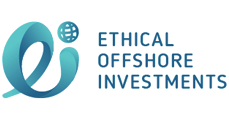Investing in the next wave of artificial intelligence
James Yardley – 23/04/2024
In the landscape of technological advancement, 2023 emerged as a pivotal year marking the widespread adoption of artificial intelligence.
With the advent of ChatGPT, the public’s awareness of generative AI’s capabilities skyrocketed, while tech behemoths poured billions into solidifying their positions in the sector. This frenzy translated into remarkable share price returns, especially for the ‘Magnificent Seven’ tech giants.
However, the question looming large is: what comes next? and how active managers can take advantage.

2023 was the year that artificial intelligence (AI) entered the public consciousness. The launch of ChatGPT alerted people to the power and potential for generative AI, while the technology giants ploughed billions into ensuring their participation in the sector. This led to strong share price returns, particularly from the ‘Magnificent Seven’ technology giants, who were seen as the key beneficiaries.
But what happens next?
The growth of AI appears unstoppable. Few now doubt its ability to improve productivity, reduce costs and open up new pathways of economic growth. Precedence Research suggests that the global AI market will expand to more than $1.5 trillion by 2030*. Google CEO Sundar Pichai believes AI will touch every industry, every sector, every job role and change people’s lives, the way they work and way they live**.
It is already having an impact. Chris Ford, manager of the Sanlam Global Artificial Intelligence fund, points out that AI is making changes in a range of different areas: “What has AI ever done for us? We’d like to highlight the following – not an exhaustive list: protein folding, navigation, predictive maintenance, computer games, mapping of chemical space, translation, language generation, language processing, supply chain management, drug discovery, data flow management, targeted advertising, fraud detection, credit scoring and facial recognition.”
He also highlights the discovery of new materials. GnoME, the AI system developed by Google’s DeepMind unit, has accurately predicted the structure of 2.2 million new inorganic crystal substances (these are the substances that form the basis of the digital economy)***. He adds: “AI is delivering meaningful benefits for humanity and at pace – in the past, the discovery of new materials was essentially a ‘trial and error’ process.”
The problem for investors
This is all exciting, but for investors there have been wobbles. The early exuberance has passed, and markets have increasingly demanded that any AI growth is not just theoretical, but is reflected in companies’ earnings and business forecasts. This has seen the ‘AI winners’ of the ‘Magnificent Seven’ fracture with companies such as Nvidia and Microsoft seeing tangible progress on AI, while Apple and Tesla have lagged.
Even for those companies with clear strength on AI, there are risks. Nvidia, for example, saw its share price slide over 13% over the past month^ on concerns that the semiconductor cycle would not be as strong as expected. Weaker guidance from TSMC and ASML unnerved markets. Chris says it is plausible that the AI revolution will not be as data and semiconductor-intensive as is currently assumed and high expectations are embedded into valuations. He points out that the spending on data tends to settle at around 14% per year***.
Equally, even where fund managers are committed, AI may only be part of the thesis. Microsoft has been an AI pioneer, announcing the general release of Copilot for Office 365 in November 2023. Ben Peters, manager of the IFSL Evenlode Global Income fund, is an investor in Microsoft and supports its AI development, but adds: “While we remain somewhat sceptical of the ability of AI to revolutionise business models in the immediate future, its capacity to enhance productivity is undeniable. While our investment case for Microsoft focuses more on the cloud adoption trend than the sale of Copilot services, it demonstrates Microsoft’s innovative approach and its existing relationships with business can continuously add value.”
Looking further afield for opportunities
Investors may need to look further than the mega-caps for the next wave of opportunities within AI. Chris believes that the next step in AI development is to build appropriate infrastructure. He says: “The priority now has to be the building of infrastructure on which AI will be built and run. Companies can’t sell products and services until that infrastructure has been built. Companies are waiting for platforms and from there, products and services will emerge.”
The ‘killer apps‘ – the AI equivalent of, say, Amazon – seems some way off. The use cases for disruptive technology can take time to emerge. When these killer apps emerge, growth will not be linear, but could be significant. Ford believes these technologies will be exciting when they emerge.
The assumption has been that valuations are stretched across the AI complex, but Chris disputes this characterisation. He says: “Valuations are not a problem overall, but there are problems in certain areas. Companies such as Microsoft are seeing elevated valuations, with PE ratios in the 30s. Alphabet, in contrast, is relatively low compared to history.” He also believes there is some froth in the semiconductor market.
He instead points to companies such as IT consulting group Accenture and cloud-based data analytics group Snowflake, were there is “an airpocket developing” as investors focus elsewhere. For Snowflake, shares are less than half their peak seen in 2021^.
How can investors gain exposure?
While it is encouraging that there are still parts of the AI market with a strong runway of growth, and new opportunities emerging as the AI landscape changes, accessing these areas is likely to be more difficult than it was in the first wave. It was possible to access the early growth of AI through an S&P 500 tracker, or growth focused US equity fund, where the Magnificent Seven would often make up a significant chunk of the investments. Uncovering the second wave of winners is likely to require more forensic stock picking.
The Sanlam Global Artificial Intelligence fund is an obvious choice, with manger Chris Ford looking to identify the winners among the users of AI as well as the generators and enablers of AI. The fund has some exposure to the Magnificent Seven, but blends this with more eclectic ideas with companies such as Keyence, Siemens Healthineers and SAP^^.
Generalist global technology funds, such as the AXA Framlington Global Technology fund, will also be tapped into new developments in AI, alongside other areas such as semiconductors, healthcare technology, and technology hardware. Funds such as Baillie Gifford Global Discovery are broader in scope, but new development in AI is one source of ideas.
AI is a major growth area, but its growth will be bumpy, as markets work out the key use cases and likely winners. To date, the Magnificent Seven have been the winners on AI growth, but they now look expensive, and expectations are high. Finding the next group of winners may take a skilled hand.
*Source: NewMediaWire, 15 March 2023
**Source: Google Blog, 29 August 2023
***Source: Sanlam Investments, April 2024
^Source: MarketWatch, as of 24 April 2024
^^Source: fund factsheet, 31 March 2024
Please Note:
This article was first published by Fund Calibre and is provided for information only. The views of the author and any people quoted are their own and do not constitute financial advice. The content is not intended to be a personal recommendation to buy or sell any fund or trust, or to adopt a particular investment strategy. However, the knowledge that professional analysts have analysed a fund or trust in depth before assigning them a rating can be a valuable additional filter for anyone looking to make their own decisions. Past performance is not a reliable guide to future returns. Market and exchange-rate movements may cause the value of investments to go down as well as up. Yields will fluctuate and so income from investments is variable and not guaranteed. You may not get back the amount originally invested.
Please speak to Ethical Offshore Investors or your personal adviser BEFORE you make any investment decision based on the information contained within this article.
At Ethical Offshore Investments, we can access the funds mentioned in this article on the various offshore investment platforms we offer. We do NOT CHARGE any additional entry and/or exit fees to purchase these funds for our clients.
As we aim not to use commission paying funds, we will access the lowest charging version of the managed fund that is available on the relevant platform…… resulting in more of the investment growth staying in your pocket.
Speak with Ethical Offshore Investments to see how you can save on your investments costs
Socially Responsible Investing – Ethical Business Standards
